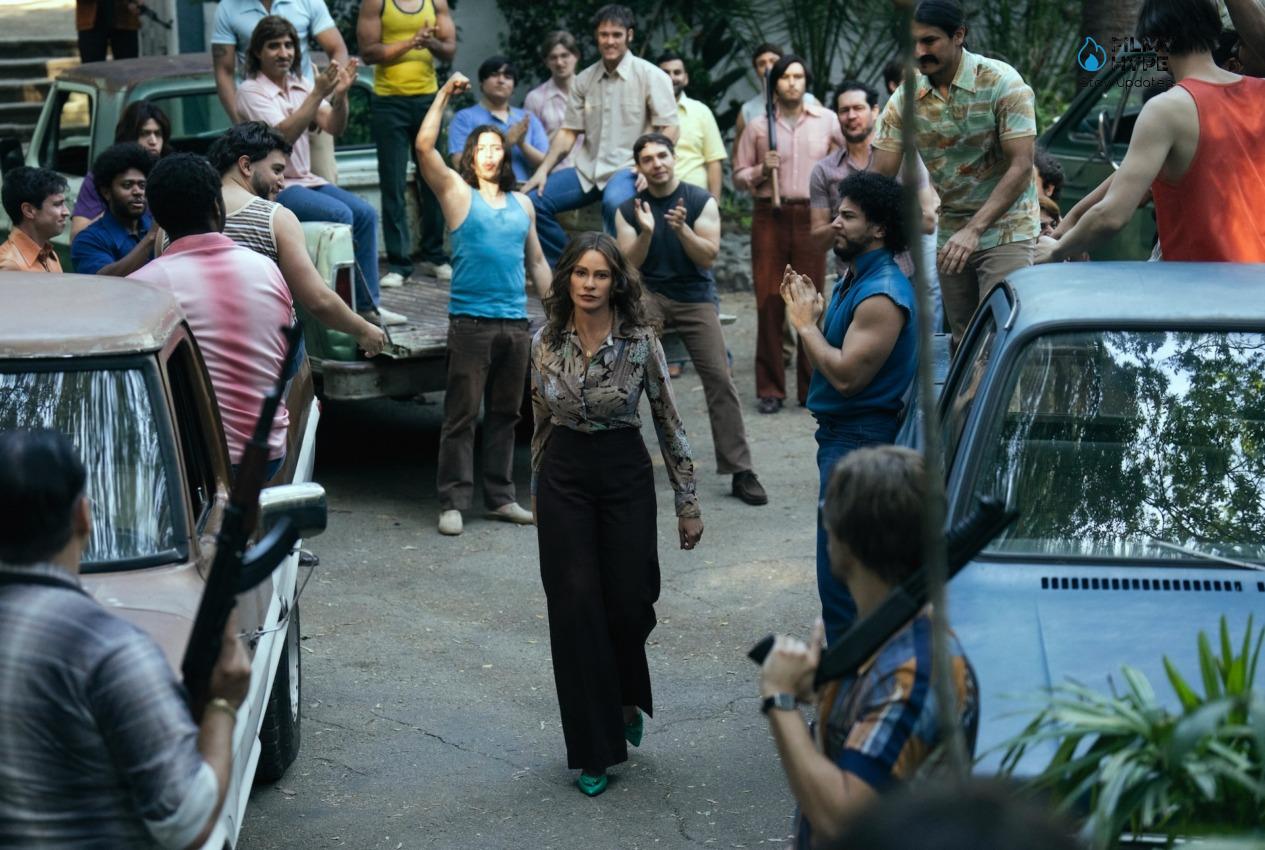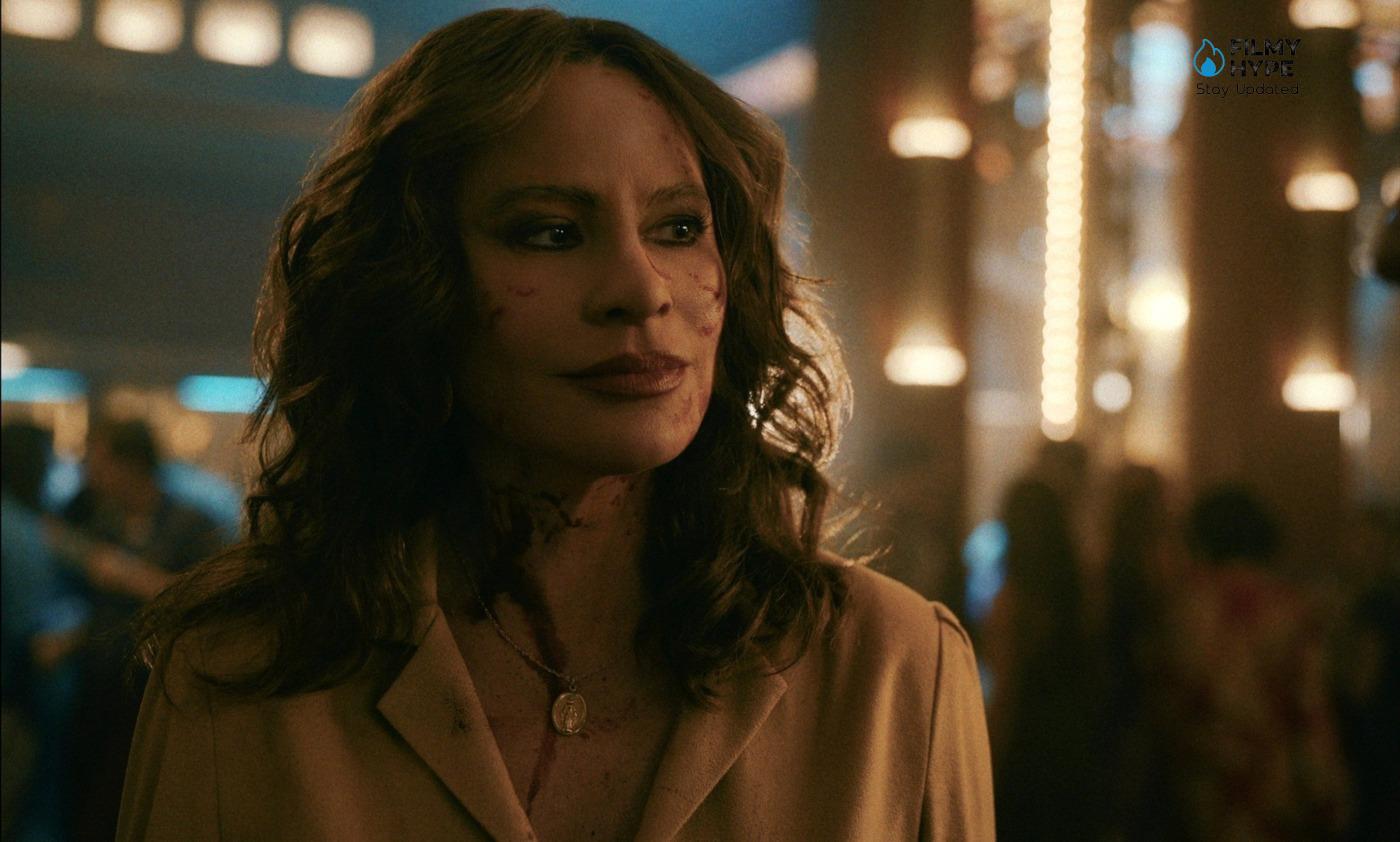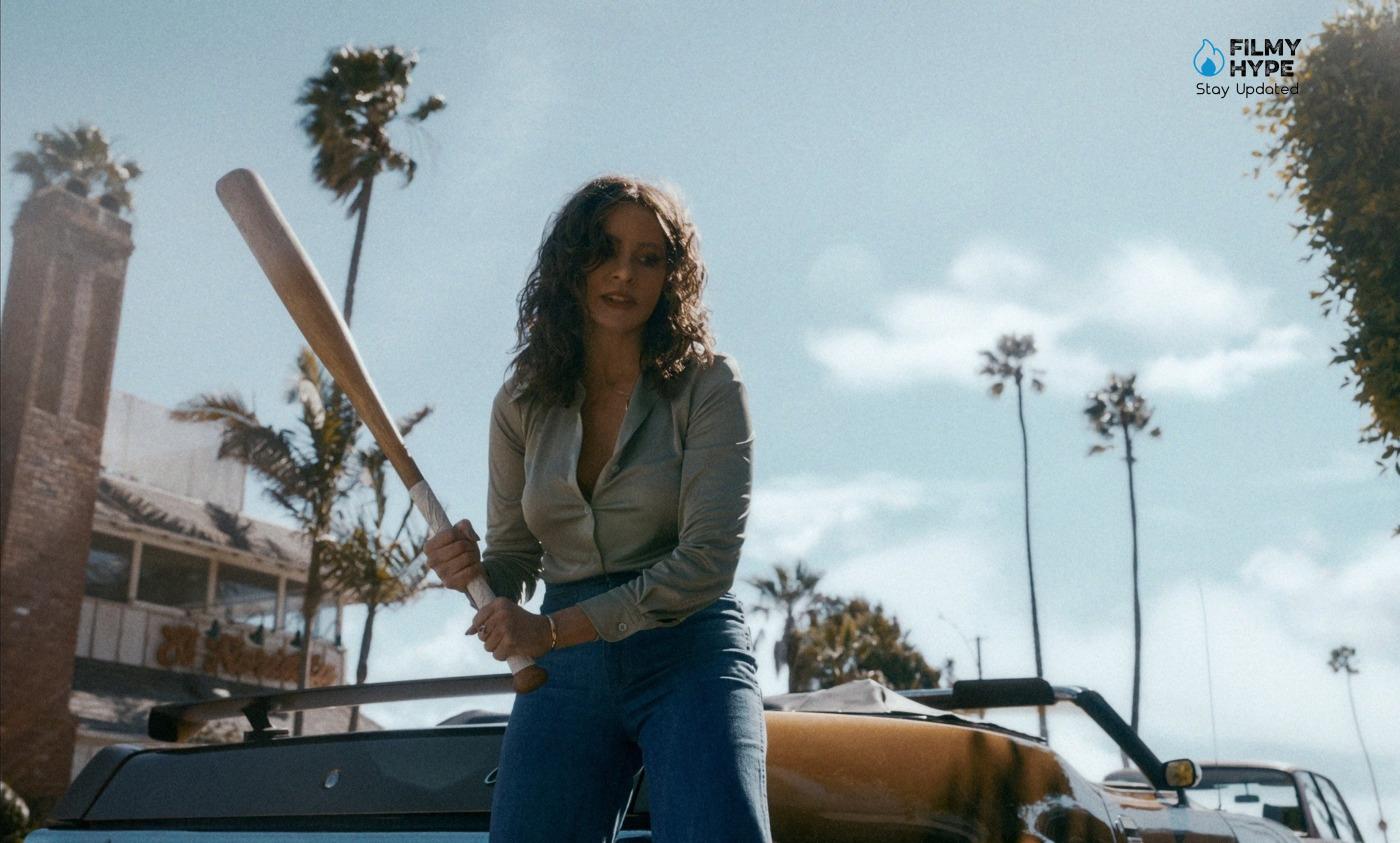Griselda Review: A Series That Will Keep You Glued to the Screen and Make You Emotional
Starring: Sofía Vergara, Alberto Guerra, Christian Tappan
Creators: Doug Miro, Eric Newman, Carlo Bernard, Ingrid Escajeda
Streaming Platform: Netflix
Filmyhype.com Ratings: 4/5 (four stars)
Griselda is Netflix’s new crime/drama miniseries. We will follow the true story of Griselda Blanco, the first and greatest female drug trafficking boss. We will see Sofìa Vergara, better known as Gloria Delgado-Pritchett in the TV series Modern Family, take on the dramatic role of the great Griselda and the executive producer of the show. The series comes from the creators and producers of Narcos and Narcos: Mexico, Eric Newman and Andrés Baiz, director of all episodes. The seventies and eighties of the twentieth century saw the proliferation of ruthless and unscrupulous figures, committed to exploiting their strength and intelligence to control the drug market both outside and inside the America of the time. In Griselda, as well as in many other products of the same type, we return to a context of this kind, relating to a woman who, like many other “drug barons” of the same caliber, was able to exploit a specific historical period with its specific hypocrisies and inconsistencies, to climb the top of a mountain made of power, money, and bloody violence.

Available on Netflix from 25 January 2024, this 6-episode TV series respects all the communicative and formal canons already seen in Narcos and other similar products, focusing on an undoubtedly charismatic protagonist, capable of transforming a story with immediately recognizable characteristics into a drama bloody and detective, in which a woman’s climb almost becomes a cause for social and psychological study. The desire to emerge of a specific individual, therefore, as a biographical impulse in telling, for the umpteenth time, the story of someone who made himself alone and with his strength, making his way through some choices that are difficult to share. All this, together with a particular feminist subtext connected to the context and some readings, both personal and otherwise, linked to sex understood as a gender identifier.
Griselda Review: The Story Plot
The story of Griselda (brought to the small screen by Sofia Vergara) opens on its protagonist herself and remains anchored on her. Unlike other narco stories on Netflix, in this case, the narrative focuses on a character who begins to build his empire starting from a complex family situation in which his position, crushed by a toxic and overbearing machismo, is clarified right from the start. from the beginning. It is precisely this woman’s strength that channels the entire introduction, transporting the spectators, and above all the fans of these stories, into a narrative context that is both familiar and, in some ways, new. Starting from Colombia, where many other drug traffickers have found their fortune, Griselda shows us a side of the coin that is perhaps even new in some ways, projecting her vision into something difficult to grasp unless we look towards America and a very distant Miami.
It is precisely in this urban context that the path of the protagonist develops, determined to realize her potential, even to the detriment of others. Once again, the criminal world of cartels and drug dealing becomes the living theater of both a personal and material drama, in which the search for fulfillment in a world of monsters unfolds on the canvas of a painting mainly composed of shadows. Thus, the Netflix series focuses on the rise of Griselda, on the journey of a protagonist with only one goal. Two questions, therefore, arise spontaneously: how far will you be able to go to realize your full potential in this sense? And what drives her to want to enter the world of drugs and cartels at all costs? It is precisely in the answer to the second question, both obvious and fascinating, that all the charm of a protagonist and of a profoundly and inevitably black story lies, whose developments it seems very easy to grasp unless we remain tied to its surface without taking into account of the great fundamental human load in every single development.

Born on February 15, 1943, in Cartagena, in the poorest neighborhood of the city, Griselda went to live in Medellín with her parents – her father abandoned her early and her mother was an alcoholic – at the age of 3. In 1954, at just 11 years old, Griselda kidnapped a rich boy to obtain a ransom. But the family didn’t take the kidnapping seriously: it didn’t add up, it all seemed like a joke. So no one paid and before she was even 12 years old, Griselda killed for the first time, shooting the boy who hadn’t earned her the money she hoped for. At 13 she was already an expert pickpocket. Her father had left years before her and when her mother found a new boyfriend, Griselda said she had suffered abuse from him. For this reason, she ran away from home at the age of eighteen. Some sources report that she had been working as a prostitute for years, although Griselda has always denied this part of her biography. When she was in her twenties she met Carlos Trujillo, a former famous for making false documents. From Carlos, Griselda had three children: Uber, Osvaldo, and Dixon.
Carlos was his second victim: he shot him, apparently over money, and left the country to move to the United States. It was 1964. She lived for a short time in New York, together with her second husband. After that, she moved to Miami with her three children. Thanks to her contacts with the Medellín drug cartel, she was a pioneer in organizing the importation of cocaine into the USA from Colombia. Suspected of having commissioned over 200 murders, over a few years Griselda built a veritable empire, which brought her tens of millions of dollars and made her the woman with the highest rank of drug boss in history. Nicknamed “The Godmother”, but also “The Queen of Coca”, she was the biggest drug boss in history. To stop drug trafficking and above all the bloody war for control of the territory, which involved Griselda and her adversaries, the special unit CENTAC (Central Tactical Unit) was created, which managed to collect the necessary documentation for Griselda‘s arrest of Blanco by the DEA (the anti-drug unit) on February 17, 1985.

Griselda had had a fourth child, with her third husband Dario Sepulveda, and she had named him Michael Corleone Blanco, in homage to Al Pacino’s character in The Godfather. Just to make us understand her reference values. Following disputes over the separation and custody of Michael Corleone, Griselda also had Dario killed. She had several health problems in prison, caused mainly by weight and smoking, and after having a heart attack in prison in 2002, in 2004 she was released from prison and sent back to Colombia, to Medellín, to live the rest of her life in peace. But on September 3, 2012, after shopping at a butcher’s shop with her pregnant daughter-in-law, Michael Corleone’s wife, she was reached by a motorcyclist who shot her twice, killing her. Griselda Blanco was held responsible for commissioning – and partly personally committing – hundreds of murders during the war for control of the drug trade, known as the Miami Drug War or also the Cocaine Cowboy Wars.
Griselda Series Review and Analysis
As in any self-respecting drug story, in Griselda too we find the classic models typical of a context based almost entirely on the rise to power of a single protagonist. In this case, to enrich such a path, the female component is added, that even more masculinized identity in a context in which, at the time, the female share was at its minimum. Griselda‘s path, right from the start, therefore, presents itself differently to the spectators, immediately making clear a personal strength and determination that distinguishes her from other Narcos of the same mold. This particular social contrast, then, also returns in the story of June (played by Juliana Aidén Martinez) who, unlike her other colleagues in the police force, manages to read and anticipate some connections in the crimes of the time that no one would have ever suspected. Feminist reflection, therefore, develops and branches within Griselda as a whole, immediately becoming one of its most interesting aspects, capable of distinguishing it from other products of the same mold, identifying in some narrative choices a clear voice that goes beyond the screen, relating directly to home viewers.
The strength of the protagonist and the determination of her counterpart in uniform are at the center of a journey in which the mutual desire to emerge is continually questioned by the men on both sides. In all this, the psychological dimension takes over, with the unconscious shaped by personal events, and a particular coldness in acting for one’s gain. In this Griselda is clearer and more direct than ever, staging the journey of a woman whose cruelty reaches unhoped-for and unexpected heights (if you don’t know her biography), fueling a vision that makes the criminal strategy a justification aimed at erasing any moral reflection in this sense. A dualism fueled by luxury and power, therefore, develops the story of this TV series, placing the gaze of a woman who is very difficult to fully decipher her intentions and emotional ties with the world around her at center stage. All fans of stories connected to the world of Narcos should not miss Griselda. Although developing from a series of narrative models seen and addressed in other stories of the same type, this TV series soon manages to find its intriguing voice, especially due to the biographical traits specifically connected with the reality of a character who existed.

In the realistic imagery from which the series was taken, therefore, there is a fascination capable of easily breaking the limits of the small screen, pushing information beyond television fiction itself. Going beyond the general care in terms of aesthetics, staging, and costumes, what certainly shines in Griselda is the interpretation of Sofia Vergara who transforms in front of the camera, gradually erasing herself in favor of an equivocal and enigmatic, ruthless and unscrupulous, cruel and determined to get where blood, power, and money move hand in hand. In building his Griselda, therefore, we soon forget about the actress herself, busy disappearing completely, with a commitment to interpretation that is clear from the first opening sequence.
Despite Griselda Blanco’s blood-stained hands and the series of crimes she committed, she shows something from a human point of view that makes her different from all the other drug trafficking bosses, before and after her. From a psychological point of view, Griselda is a woman who has had to make some rather questionable and morally reprehensible decisions, killing is never justifiable, under any circumstances, but as we well know in the world of the cartels and drug traffickers, there are not many moral scruples or pangs of conscience. Drug traffickers have always played with people’s lives as if they were just pawns on a chessboard, losing one or eating another wouldn’t have made any difference to them. Griselda, on the other hand, despite everything, manages to maintain her human side, her sense of guilt, almost until the end, she does not lose her sense of reality and considers certain gestures reprehensible or immoral and unnecessary.
This is precisely the point that creates the difference from a psychological point of view between her and the other Bosses. Although they are considerations at the limit of all reality for a person with principles and healthy moral values, in a world where the absurd becomes every day, it is right to bring them to light. Detective June Hawkins, excellently played by Juliana Aidén Martinez (The Blacklist, Prodigal Son), is considered a secretary by her male colleagues in the police department. Until the arrival of a man, Latino like her, who when put in charge of the newly formed CENTAC recognizes the value of June’s work and allows her to do what is necessary to frame Griselda. There are two women, one against the other, who clash in the war of justice – often corrupt – against crime.
Griselda Review: The Last Words
Griselda, a series that will keep you glued to the screen and make you emotional. A ruthless, ambitious, and brilliant woman, with a difficult past and her children in her heart. The biggest female drug trafficking boss with a cartel of her own, facing many challenges and making difficult and questionable choices in her life has managed to reach the pinnacle of success. Her greatest weakness will always remain, the fear of losing everything, remaining obsessed with the idea of continuing to never be safe. Available on Netflix from January 25, 2023, Griselda connects to the same language as Narcos (and similar products) to tell the story of a woman who has left her mark within the criminal context linked to drug trafficking. The classic tale of rise and personal drama, violence, blood, and money, is fueled by the interesting interpretation of a Sofia Vergara who transforms completely, fully embracing the shadows of a multifaceted and unscrupulous character.






